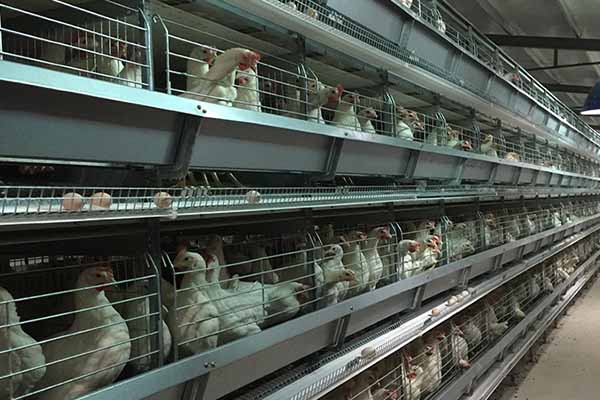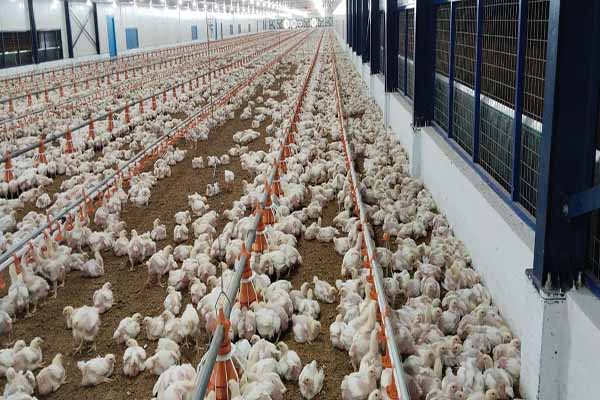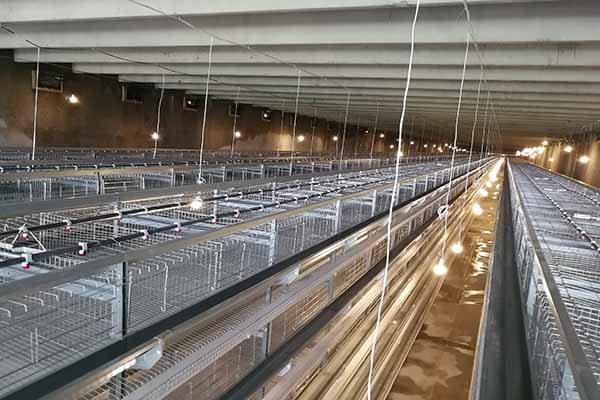Optimizing Wholesale Broiler Chicken Breeding Cages for Maximum Efficiency
Time : 2025-06-27
Wholesale broiler chicken breeding is a highly competitive industry that demands precision and efficiency. One of the key components to achieving high productivity and profitability is the use of specialized breeding cages. In this article, we delve into the intricacies of wholesale broiler chicken breeding cages, providing insights into their design, functionality, and the importance of maintaining a hygienic environment. This comprehensive guide aims to offer valuable information for professionals in the poultry industry seeking to enhance their breeding operations.
Understanding Broiler Chicken Breeding Cages
Broiler chicken breeding cages are designed to house broiler chickens in a controlled environment, ensuring optimal growth and health. These cages are typically made of metal or plastic and come in various sizes and configurations to accommodate different stages of the birds’ lifecycle. The following sections explore the key aspects of these breeding cages.
Material and Construction
Quality materials are crucial for the durability and longevity of broiler chicken breeding cages. Metal cages are preferred for their strength and resistance to corrosion, while plastic cages offer ease of cleaning and reduced risk of injury to the birds. The construction should include sturdy frames, secure latches, and smooth surfaces to prevent any harm to the chickens.
Size and Space Allocation
The size of the breeding cages is a critical factor in determining the efficiency of the breeding operation. Each cage should provide sufficient space for the chickens to move around, eat, and rest comfortably. Typically, the cage size ranges from 2 to 4 square feet per bird. This space allocation ensures that the chickens do not become overcrowded, reducing the risk of disease and injury.
Environmental Control
Climate control is essential in broiler chicken breeding cages. The temperature, humidity, and air quality must be carefully managed to create an optimal environment for the chickens. Temperature should be maintained between 70°F to 80°F (21°C to 27°C) for the first few weeks, gradually decreasing as the birds mature. Humidity should be kept between 60% to 70% to prevent respiratory issues. High-quality ventilation systems and heating/cooling units are essential for maintaining these conditions.

Feeding Systems
Efficient feeding systems are integral to the success of broiler chicken breeding. Automated feeders can be installed in the cages to ensure that the chickens receive a consistent and balanced diet. These feeders should be designed to prevent waste and contamination, with easy-to-clean components for hygiene purposes.
Watering Systems
Access to clean, fresh water is crucial for the health of broiler chickens. The watering systems in breeding cages should be designed to provide continuous access to water without the risk of spillage or contamination. nipple drinkers or cup drinkers are commonly used, and they should be regularly cleaned and maintained to prevent the buildup of algae and bacteria.
Sanitation and Hygiene
Sanitation and hygiene are paramount in broiler chicken breeding operations. Regular cleaning and disinfection of the breeding cages are essential to prevent the spread of diseases. The design of the cages should facilitate easy cleaning, with smooth surfaces and removable components. It is also important to establish a biosecurity program to limit the introduction of pathogens to the breeding facility.
It is also important to establish a biosecurity program to limit the introduction of pathogens to the breeding facility.
Enhancing Efficiency with Advanced Equipment
Modern technology has revolutionized the poultry industry, and advanced equipment can significantly enhance the efficiency of broiler chicken breeding operations. The following are some key pieces of equipment that can be integrated into the breeding cages:
Automated Monitoring Systems
Automated monitoring systems can track various parameters such as temperature, humidity, and ammonia levels in real-time. Thi s data allows breeders to make timely adjustments to the environment, ensuring the health and well-being of the chickens.
s data allows breeders to make timely adjustments to the environment, ensuring the health and well-being of the chickens.
Health Management Software
Health management software can help breeders monitor the health of their chickens, identify potential disease outbreaks, and implement preventive measures. This software often integrates with automated monitoring systems to provide a comprehensive view of the breeding operation.
Environmental Control Units
Environmental control units are designed to automate the adjustment of temperature, humidity, and air quality within the breeding cages. These units can be programmed to respond to specific conditions, ensuring a consistent and optimal environment for the chickens throughout their lifecycle.
Conclusion
Wholesale broiler chicken breeding cages play a crucial role in the success of the poultry industry. By understanding the design, functionality, and importance of maintaining a hygienic environment, professionals can optimize their breeding operations for maximum efficiency. Investing in advanced equipment and technology can further enhance productivity and profitability. As the industry continues to evolve, staying informed about the latest advancements in broiler chicken breeding cage technology is essential for maintaining a competitive edge.











